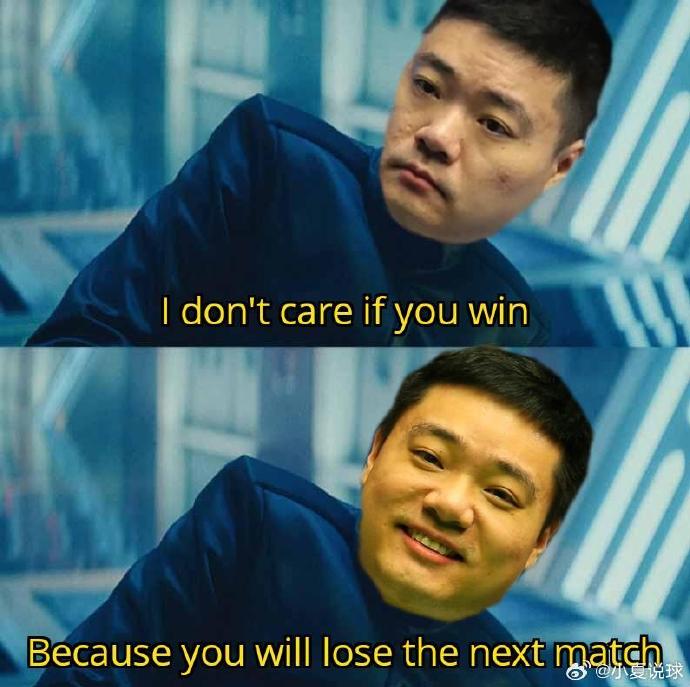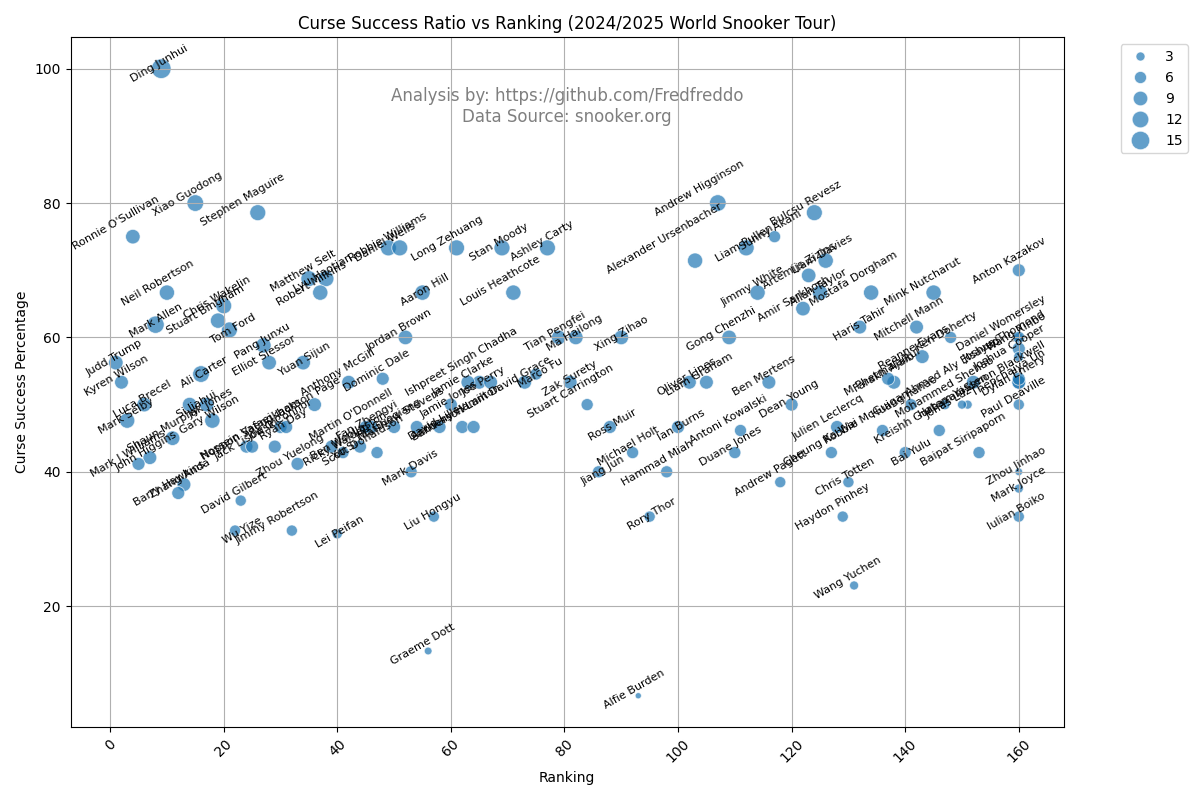Ding Junhui's Curse: A Data Analysis
He who beats Ding this round, next round, shall not pass

An interesting pattern on World Snooker Tour has come to fans’ attention lately. Basically, since 2024 Player Championship, in the last 20 tournaments that Ding Junhui played in, the opponent who beat him would be knocked out in the very next match.
This trend was first noticed by Chinese fans last year, when people called it “The 1st Law of Ding Junhui”. It drew more attention from English-speaking fans recently. In particular, Shaun Murphy mentioned it in the onefourseven Snooker Podcast. Detailed lists of who Ding lost to and how they got beaten in the next round were compiled by multiple sources, you may find one in Chinese here on Weibo, and one in English here on Metro.
This Law, or curse, works not only in normal way, such as whoever beat Ding in Quarter-final would got beaten in Semi-final, but also in mysterious ways. For example, in 2024 World Open, Ding lost to Judd Trump in the final, and then Judd would later be beaten in the very first round of the very next tournament, Tour Championship. Also, in this year’s German Masters, where Ding withdrew from the tournament, Ross Muir, who received a bye against Ding, got knocked out in his next match.
Naturally, people start to wonder if Ding actually has some mysterious power, or it’s just coincidental. I made an analysis regarding all the WST players records during the time frame when Ding’s Curse worked 100% (2024 Player Championship to 2025 World Grand Prix) and find some interesting results. I gathered information from snooker.org, you may find my source code here.
Definitions
We keep track of the following features for each player Pi:
- Li: total number of loss the player had in the time period. We only consider Knockout tournaments, so Li = Ai - Wi, where Ai is how many tournaments the player played in, Wi is number of champions the player won.
- Ci: count of Curse Success. A successful curse means that for player Pj that Pi lost against, Pj loses their next match on Tour.
- Ri: World Ranking of the player, an integer larger than 0.
Based on Li and Ci, we may calculate a Curse Success Rate CSRi = Ci/Li for each player.
We know that for Ding Junhui, his CSR=100%
Findings
From the data, we find out some players that are nearly as strong as a “Curser” like Ding Junhui:
- Xiao Guodong and Andrew Higginson: Curse Rate (CSR) = 80% (12/15)
- Stephen Maguire, Ronnie O’Sullivan, Bulcsu Revesz, Sunny Akani: CSR = 75%
If one encountered those players above, one would likely not pass their next round.
Also, there are some “Highly friendly players”, meaning that one would likely to win at least another match if one beat that player
- Alfie Burden. CSR = 1/15. Having lost match in 15 tournaments, only one time his opponent did not win next match.
- Graeme Dott (2/15), Wang Yuchen (3/13), Lei Peifan (4/13)
Visualization
So, people are wondering if this Curse Success Rate has something to do with a player’s style or personality. I decided to plot players’ CSR against their rankings, a good measurement of a player’s strength.

No obvious trend or pattern could be seen here. One may argue there might be a trend within some certain groups of lower ranked players. Ding Junhui, Graeme Dott, and Alfie Burden are clearly shown as outliers.
Most players’ CSR fall within the range 40%~60%. This is aligned with the nature of the CSR we calculated. In each non-first-round match in a knockout tournament, both players had beaten someone else in the previous round. So, for the two players beaten last round, there are exactly one successful “curse” and one failed “curse”. Therefore, overall the expected CSR for a random player should be 50%. However, in some Snooker tournaments, tiered knockout system were used, where not all players have a “previously beaten opponent” and players who beat someone to play against a higher-ranked player are likely to be beaten, the overall CSR are slightly over 50% as shown in the plot.
A histogram of CSR:

So, is it coincidental or something special? If special, Murphy and some fans argued that maybe “it took so much energy to beat Ding that the player could not achieve his best in the next round”, while some Chinese fans joked that “Beating Ding creates such an illusional sense of accomplishment so that the player became over-confident next round”
For me, I like this redditor’s words: “It’d be funny if it becomes a self fulfilling prophecy and people start bottling matches because they beat Ding”